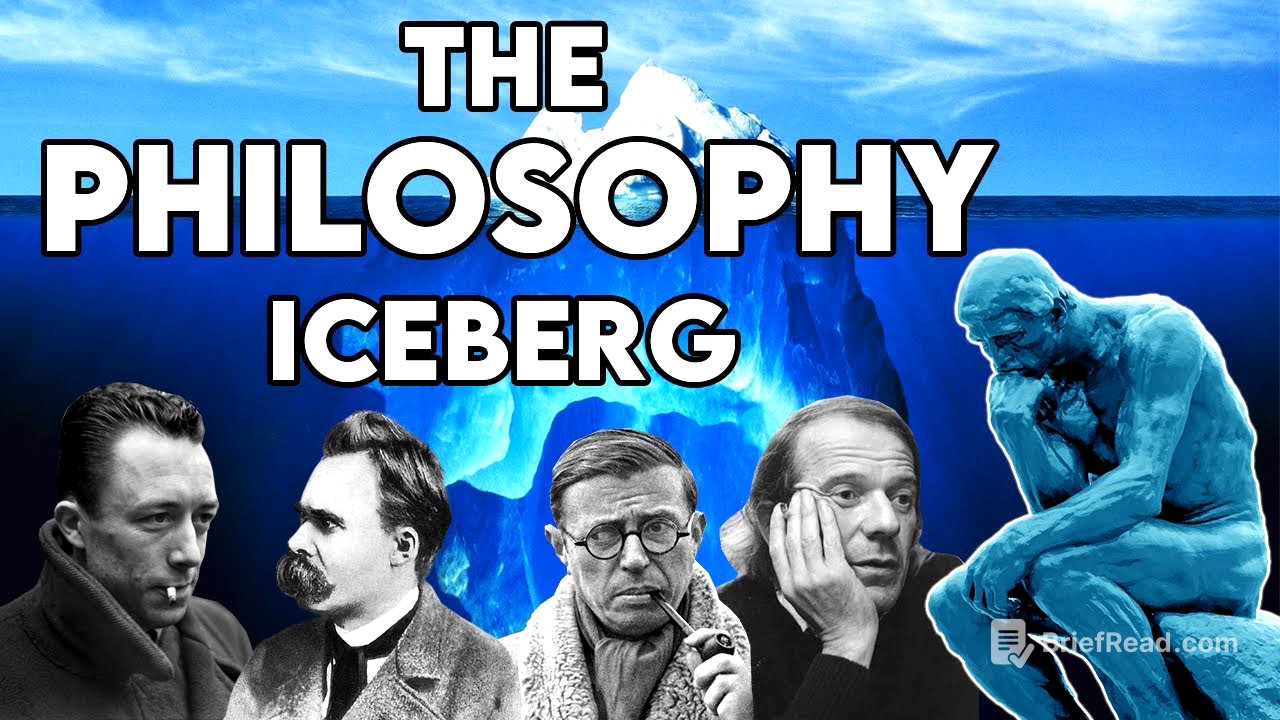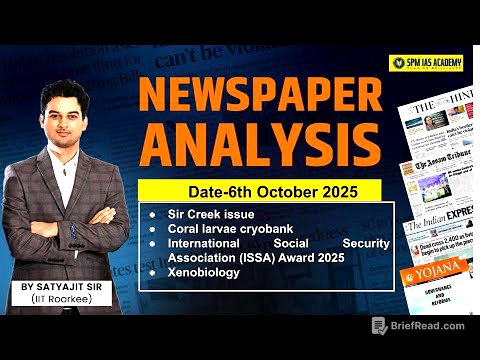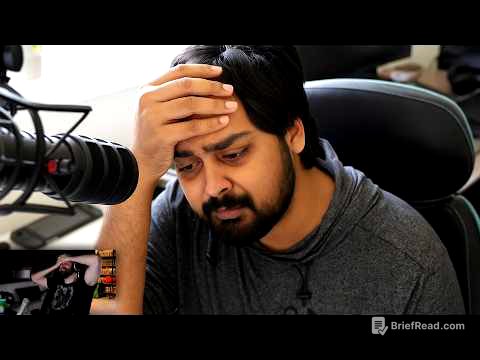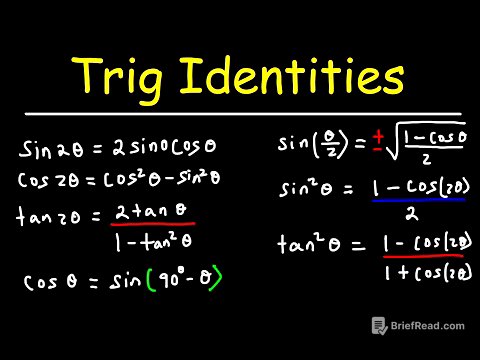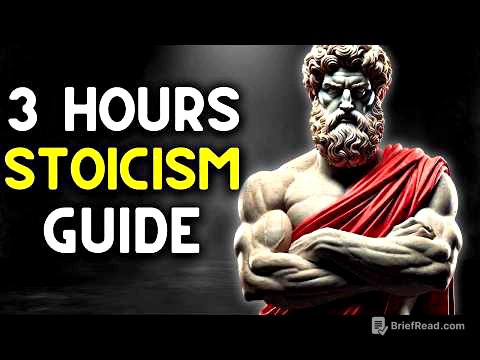TLDR;
This video explains the philosophy iceberg meme, which organizes philosophical concepts from the most popular and accessible to the most obscure and complicated. The video explores various philosophical ideas, ranging from rationalism and empiricism to more complex concepts like schizoanalysis and hyper-reality, and even delves into some bizarre and controversial theories associated with figures like Nick Land and the CCRU.
- Rationalism and Empiricism
- Existentialism and Absurdism
- Post-Structuralism and Deconstruction
- Accelerationism and Hyper-reality
Intro [0:00]
The video introduces the concept of the philosophy iceberg, a meme format used to categorize philosophical topics from the most well-known to the most obscure. The creator references a specific iceberg meme from Reddit user deadspark, which focuses on philosophical concepts rather than individual philosophers. The video is presented as a comprehensive exploration of these concepts, inviting viewers to settle in for a long and detailed discussion.
Level 1 [1:01]
This section covers foundational philosophical concepts. Rationalism is presented as the view that reason is the primary source of knowledge, while empiricism posits that sensory experience is the main source. Solipsism is introduced as the idea that only one's own mind is sure to exist. The section also touches on basic political concepts like democracy and the spectrum between liberalism and conservatism. Simulation theory, the idea that our reality is a computer-generated simulation, is mentioned. The justified true belief theory of knowledge is explained, along with the idea that science can make philosophy redundant, a notion the video disputes. Basic ethical concepts like the value of free speech and human rights are also included, as well as nihilism. The chapter concludes with discussion of direct and indirect realism, modern stoicism, theism, atheism, agnosticism, basic idealism, the School of Life YouTube channel, and Hume's fork.
Level 2 [8:13]
The second level introduces more complex philosophical ideas. Hume's fork, which divides truths into relations of ideas and matters of fact, is explained. The famous quote "Cogito, ergo sum" (I think, therefore I am) by Descartes is discussed as a self-evident claim. Property dualism, the belief that the universe consists of one substance with distinct physical and mental properties, is contrasted with substance dualism. Anti-natalism, the view that having children is morally wrong, is presented along with its arguments. The classic debate between determinism and free will is explored, including the concept of compatibilism. Absurdism, the conflict between the human desire for meaning and the inability to find it, is examined through the lens of Albert Camus' "The Myth of Sisyphus." The section also covers Hume's analysis of causation, deontological ethics, the continental analytic split in philosophy, Gettier cases as objections to the justified true belief theory, existentialism, pessimism, utilitarianism, ancient stoicism, Plato's views on democracy, virtue ethics, marxism, optimism, meta ethics, the world of forms, humanism, aesthetics.
Level 3 [22:47]
This level continues to explore more intricate philosophical concepts. The idea that Plato's philosophy was entirely Socrates' is presented, questioning the originality of Plato's thoughts. Sartre's concept of radical freedom and responsibility is introduced, along with Hegel's dialectics involving thesis, antithesis, and synthesis. Schopenhauer's concept of "will" as the inner core of being is discussed, as well as Heidegger's distinction between "ready at hand" and "present at hand." German idealism, critical theory, the Oedipus complex, throwness, structuralism, post-structuralism, the pleasure principle, mindedness, the will to power, the society of the spectacle, the death drive, and Nietzsche as an existentialist are also covered.
Level 4 [34:44]
This section the video addresses highly complex and often debated philosophical ideas. It begins with the challenge of understanding Hegel's work, particularly "Phenomenology of Spirit". The video then moves into accelerationism, discussing its various forms such as l/acc, r/acc, and u/acc. Deconstruction, as developed by Jacques Derrida, is presented as an approach to philosophy that questions the assumption of absolute truth through language. The idea that Bertrand Russell was a psyop is introduced as a conspiracy theory. The connections between Nietzsche and post-structuralism are explored, followed by schizoanalysis, desiring production, the body without organs, rhizomes, the will to power, disciplinary society, the accursed share, limit experience, cybernetics, hyper-reality, and the nomadic war machine.
Level 5 [48:44]
The fifth level dives into even more specialized and esoteric philosophical concepts. It begins with Georges Bataille's theory of general economy, emphasizing the sun as the ultimate source of life and wealth. Hegel's role in the development of hermeneutics is discussed, highlighting his idea that non-linguistic arts also require interpretation. The video then explores Nick Land's argument for a relationship between blockchain technology and the philosophy of time. The political compass is presented as a hyperstition, a fiction that makes itself real. The section also covers tribute bands explaining hyper-reality, Kant through Nick Land, Bataille through Nick Land, base materialism, gender accelerationism, the solar anus, gender hacking, God is a lobster, Heraclitus was the first post-structuralist, societies of control, Baudrillard's metaphysics, the libidinal band, and the great zero.
Level 6 [1:00:47]
This section continues the exploration of obscure and controversial philosophical ideas. It begins with the claim that Trump is a Kantian, referencing a bizarre rant about Trump completing Kant's philosophical system. Hyperpop is presented as accelerationist music, and the Freudian concepts of Thanatos and Eros are introduced. The video then delves into Thanatos accelerationism, libidinal materialism, an intro to Bataille that isn't porn, the Lemurian Time War, K-War, psychoanalysis is fascism, hypervirus, and capitalism is artificial intelligence.
Level 7 [1:08:40]
The seventh level explores some of the most esoteric and fringe philosophical concepts. It starts with the idea that Spinoza invented the rhizome, linking Deleuze's admiration for Spinoza to the concept of rhizomes. The video then discusses DC Barker as a hyperstitional character created by the CCRU, and the claim that Hicks is correct about postmodernism, referencing Stephen Hicks' book and its criticisms. The section also covers neo-leviathans, the pneumogram, capital is zero, the CCRU does not has not and will never exist, Labord Clinic was a test for societies of control, Hasan is Sabaa magic as a line of flight, Leguardian praxis.
Level 8 [1:15:39]
This final level presents some of the most outlandish and speculative ideas. It begins with the claim that Nick Land is two people, possibly referring to the stark differences between his early and later work. The Hegel green text is presented, suggesting Hegel was the antichrist. The Kathy Newman interview is claimed to be part of the Lemurian Time War, and Asifal is suggested as the first CCRU. The section concludes with 10 tricks point never in the CCRU.
Conclusion [1:20:38]
The video concludes by thanking viewers for watching and encouraging them to research any topics that interested them. The creator expresses that this was the most enjoyable video they have researched and produced. They also express appreciation for viewers who made it to the end of the long video and encourage them to like and subscribe for future content.
